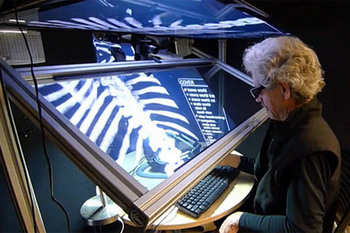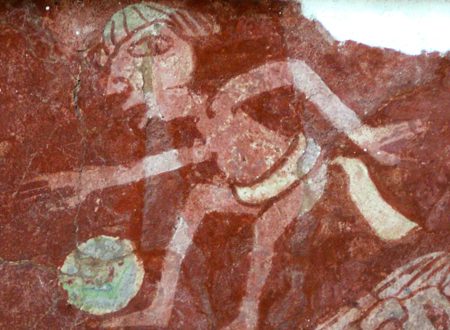Almost 2,000 years after its last native speakers disappeared, the sound of Ancient Babylonian makes a comeback in an online audio archive. The recordings include excerpts from some of the earliest known works of world literature, dating back to the first years of the second millennium BC.
Prompted by the enquiries of curious colleagues and friends, Dr. Martin Worthington, an expert in Babylonian and Assyrian grammar from the University of Cambridge, has begun to record readings of Babylonian poems, myths and other texts in the original tongue. In an effort to present users with a variety of voices, the readings available online for freeat www.speechisfire.com are given by Dr. Worthington’s fellow Assyriologists.
Babylonian is one of two variants (or dialects) of Akkadian, the other being Assyrian. Akkadian became the ‘lingua franca’ of the Near East around, until its usebegan to decline around the 8th century BC. The last Akkadian cuneiform document dates to the 1st century AD.
Dr Worthington’s hope is that having heard the sound of the extinct language the earliest attested Semitic language, some listeners will be sufficiently intrigued to investigate further, and perhaps end up studying the history, language or culture of the period.
“Whenever I tell people what I do, the first question they ask is what did Babylonian sound like, and how do you know?” Dr. Worthington said. “In the end I decided that the best thing to do would be to create a resource where they can listen to it for themselves.”
“I also wanted to dispel some long-standing myths. Many people think that the further you go back in history, the less you know about it. In fact, we have masses of information about the Babylonians. The site aims to give users a taste of the richness and complexity of Ancient Mesopotamian culture, which is not something you normally learn much about at school.”
The existing collection focuses on poetry in particular. Most of this is known from cuneiform inscriptions found on clay tablets in the area that was once Mesopotamia, and now comprises Iraq, as well as parts of Syria, Turkey and Iran.
“In many cases they are the equivalent of Old English tales like Beowulf,” Dr. Worthington added. “Through them, we meet gods, giants, monsters and all sorts of other weird and wonderful creatures. As stories they are amazing fun.”
Many also bear parallels with Biblical tales. TabletXI of The Epic of Gilgamesh, for example, contains a deluge story; Utanapishtim tells the hero-king Gilgamesh how he was instructed by the gods to prepare a boat ahead of a great flood,andto put on board “the seed of all living creatures”.
Beyond literature and poetry, the site has also contains other important documents from the period. Part of the Codex Hammurabi, for example, the ancient law code from 1790 BC, can be both read and heard – although you are (not yet) treated to all 281 of the laws and parallel punishments Hammurabi had listed.
Working out how Babylonian, or any dead language, sounded relies on a variety of strategies and techniques. In some cases, researchers can use Babylonian and Assyrian words transcribed into alphabets other than cuneiform, but often the sound is forensically deduced through the careful study of letter combinations and spelling patterns, using the original Cuneiform texts.
“It’s essentially detective work,” Dr. Worthington said. “We will never know for sure that a Babylonian would have approved of our attempts at pronunciation, but by looking at the original sources closely, we can make a pretty good guess.”
Thirty recordings have been released so far and more are currently being prepared. While you’re waiting for those to be released orif you’d decide Ancient Babylonian is not your thing, whynot try some Anglo-Saxon aloud?




